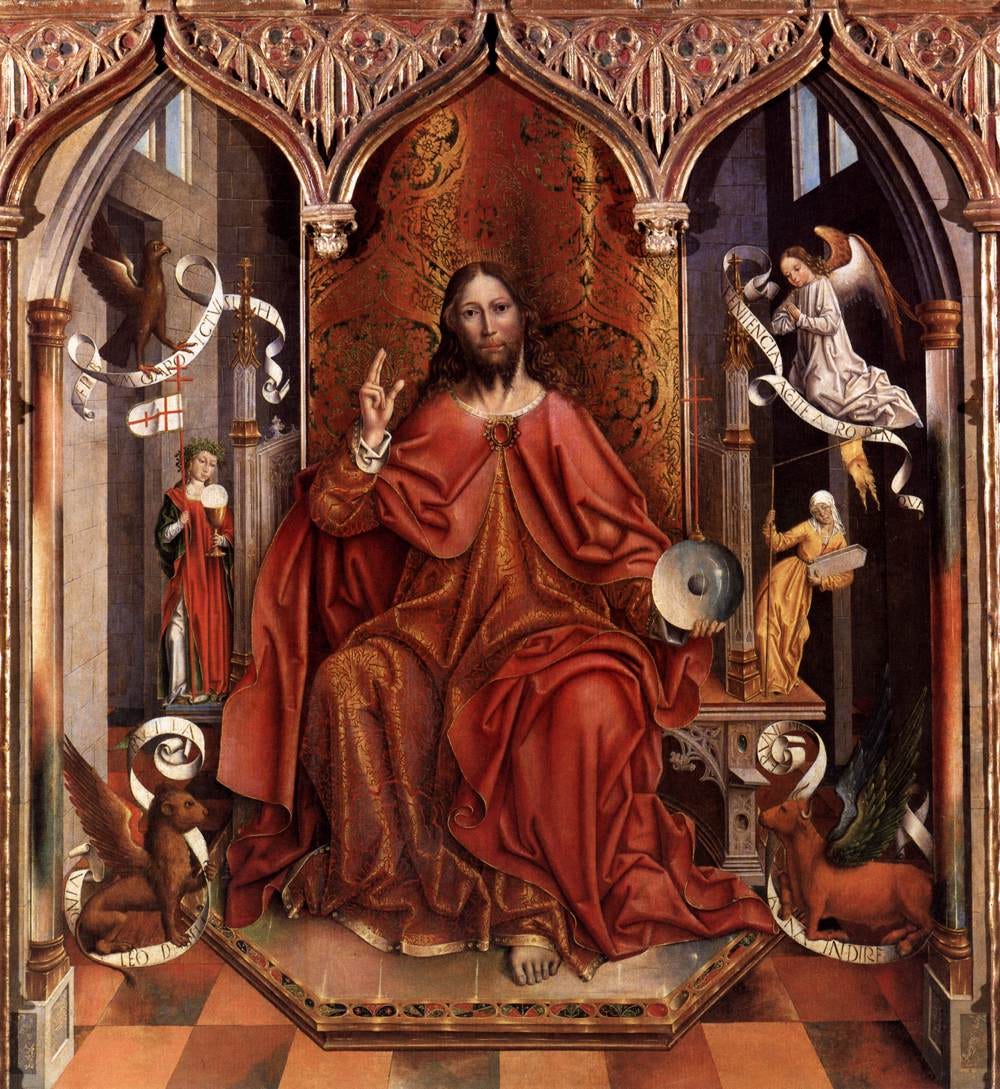The Solemnity of Christ King
Jesus Christ is King of the Universe
The Solemnity of Christ the King is rich in theological and spiritual significance and has profound implications for the Christian life.
The Solemnity of Christ the King was established by Pope Pius XI in 1925 with his encyclical Quas Primas. This period was marked by growing secularism and a diminishing recognition of the Church's authority, both in society and in the hearts of the faithful. Pope Pius XI, witnessing the erosion of Christian values and the rise of dictatorships that suppressed the Church, saw the need to reaffirm Christ's sovereignty over all aspects of life. This solemnity serves as a robust affirmation of the lordship of Christ over individuals, families, societies, and governments.
The Council of Nicaea in 325 AD was pivotal in defining the consubstantiality of Jesus Christ with God the Father. This doctrine, asserting that the Son is of the same substance as the Father, was a direct response to Arianism, which denied the full divinity of Christ. The Nicene Creed, recited in Masses worldwide, crystallizes this truth in its proclamation: "God from God, Light from Light, true God from true God, begotten, not made, consubstantial with the Father." Pope Pius XI's institution of the Feast of Christ the King reaffirms this truth, presenting Christ not only as a moral leader or historical figure but as the divine ruler of the universe, emphasizing His divine nature as consubstantial with the Father.
This solemnity also invites us to ponder our own baptismal anointing as priest, prophet, and king. We are called to a royal mission, not of domination but of service, reflecting Christ's kingship, which He exercised from the Cross. In His kingship, there is the paradox of reigning through servitude and sacrifice, which is at the heart of Christian discipleship. By our baptism, we are immersed into this mystery of redemptive love, called to holiness and to serve others, following Christ's example.
The feast further reminds us of our responsibility in the world, akin to how Adam was given the task of naming and caring for the animals in Eden. This act of naming was not just about authority, but about stewardship and responsibility. In a similar vein, Christ, the King and Servant, names us and calls us to a life of service. He asks us to be custodians of His creation and each other, recognizing the intrinsic dignity of every person.
As we reflect on Christ's universal kingship, we confront the challenges posed by modernity and post-modernity: relativism, secularism, and the loss of a sense of the sacred. The celebration of this feast is a counter-cultural statement affirming that all temporal powers and ideologies are subject to the supreme authority of Christ. It is a call to resist the forces that seek to marginalize or deny the role of faith in the public square and in our personal lives.
The faithful, moreover, by meditating upon these truths, will gain much strength and courage, enabling them to form their lives after the true Christian ideal. If to Christ our Lord is given all power in heaven and on earth; if all men, purchased by his precious blood, are by a new right subjected to his dominion; if this power embraces all men, it must be clear that not one of our faculties is exempt from his empire. He must reign in our minds, which should assent with perfect submission and firm belief to revealed truths and to the doctrines of Christ. He must reign in our wills, which should obey the laws and precepts of God. He must reign in our hearts, which should spurn natural desires and love God above all things, and cleave to him alone. He must reign in our bodies and in our members, which should serve as instruments for the interior sanctification of our souls, or to use the words of the Apostle Paul, as instruments of justice unto God. If all these truths are presented to the faithful for their consideration, they will prove a powerful incentive to perfection. It is Our fervent desire, Venerable Brethren, that those who are without the fold may seek after and accept the sweet yoke of Christ, and that we, who by the mercy of God are of the household of the faith, may bear that yoke, not as a burden but with joy, with love, with devotion; that having lived our lives in accordance with the laws of God's kingdom, we may receive full measure of good fruit, and counted by Christ good and faithful servants, we may be rendered partakers of eternal bliss and glory with him in his heavenly kingdom.
Quas Primas - §33
In a world often marked by division and strife, the Kingship of Christ is a beacon of hope and a call to unity. It reminds us that Christ’s rule is characterized by truth, love, and justice. His kingship transcends national, ethnic, and social boundaries, calling us to a higher citizenship in the Kingdom of God. In this Kingdom, the last are first, the humble are exalted, and the meek inherit the earth.
Today’s Mass Collect
Almighty ever-living God, whose will is to restore all things in your beloved Son, the King of the universe, grant, we pray, that the whole creation, set free from slavery, may render your majesty service and ceaselessly proclaim your praise.
Through our Lord Jesus Christ, your Son, who lives and reigns with you in the unity of the Holy Spirit, God, for ever and ever.
Read Pope Pius - Quas Primas at this link.



